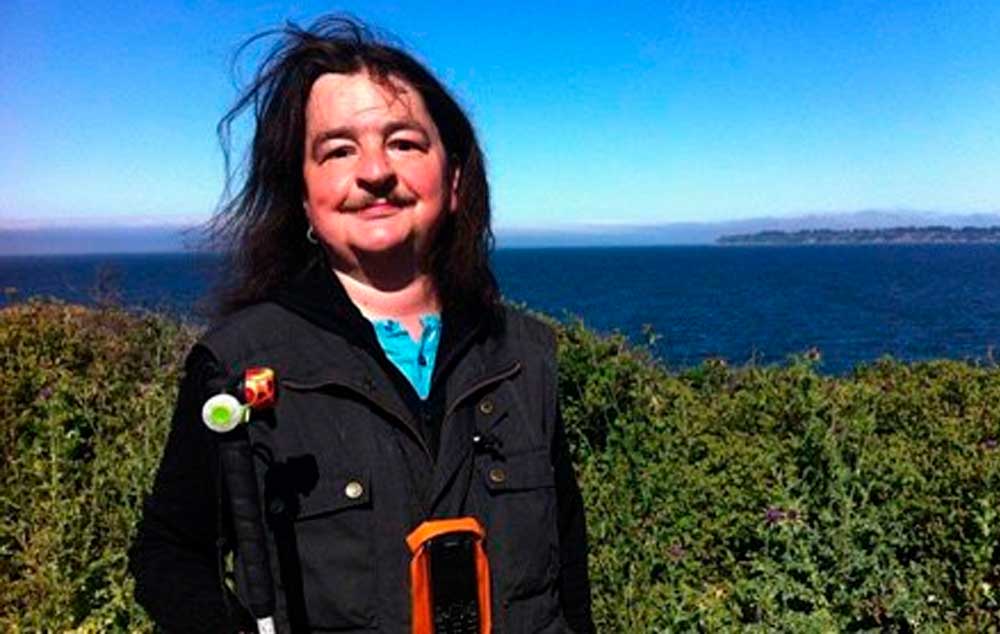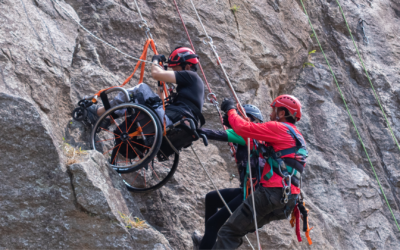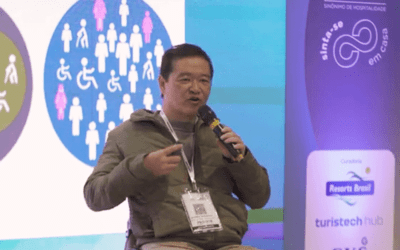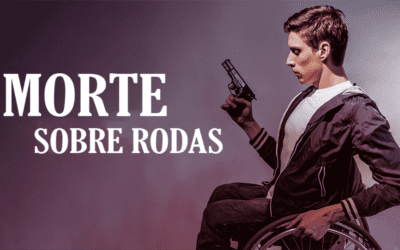
Blind from birth, Robbie Sandberg prefers to travel alone
Blind from birth, the concept of sightseeing is alien to me and frankly, standing on a street looking up at an iconic building doesn’t sound that interesting to me. But I still love to get away from the trappings of everyday life and experience new cultures by going on holiday.
I discovered the hard way, during a miserable trek to Machu Picchu in Peru, that it is vital to choose an appropriate destination. The amount of support I needed when climbing, and my complete ambivalence at reaching the summit, led me to choose more multi-sensory destinations.
Now my holidays tend to be in noisy cities with a decent transport system and a reputation for great food and friendly people. I almost always go on holiday with family or friends, but that is not the only option available for the blind traveller.
Technology trainer and globetrotter Robbie Sandberg prefers to travel alone.
“Although it might take me longer to get to places, I can do it in my own time and it is an achievement,” he says. Whether accompanied or holidaying solo, blind travellers tend to build up a non-visual picture of a place using their other senses. This is something Sandberg remembers doing on a recent trip to Kerala in India.
“Few locals spoke English, so it was difficult to ask for help. I took note of the humid atmosphere, the feel of the roads beneath my feet and the fact that they had no pavement.
“It was the sound of scooters zooming by which kept me on track. Then I’d get to the docks and smell the sea and the fish that had been caught and was able to reorientate myself.”
Getting to a destination is usually straightforward for blind travellers, as free assistance – from airport entrance, to and from the plane and then on to the next mode of transport – is available in many countries. But once there, finding your way around in unfamiliar territory can be a challenge.
Solo traveller Sandberg chooses small hotels run by locals. Once settled, he likes to explore his surroundings. He uses a cane to detect obstacles and a specialised GPS device to aid navigation. When out and about, he has a range of other strategies to keep him on track.
“I usually set a GPS point of interest for where I’m staying, so that my technology will alert me as I approach the hotel. Then, to locate my door, I will feel around for a dent in the pavement, a drainpipe that I noticed earlier or even a doorbell with a slightly different feel to the others.
“The first thing I usually do on leaving my accommodation is find a pub. In pubs, you can stand there listening to the local lingo, finding out what people there talk about. Locals in pubs are the best guides to a town and are usually happy to provide directions to my next port of call.”
I too have found that getting in touch with the culture of a place is the most helpful way to build up a mental picture. One of my favourite trips was a visit to Uganda to attend a friend’s wedding.
From the two-hour long mass – with its mixture of African drums and hymns I knew from childhood days in Ireland – to the reception with its 700 guests taking place outside under canopies, it was an honour to be present at such a traditional event.
Attitudes to disability vary from country to country. On that same visit to Uganda, I met a deaf-blind child who had been shut in one room for his first six years. Sandberg too has experienced interesting reactions to his blindness, particularly while in India.
“People would follow me constantly without identifying themselves, talking to each other all the while, then cry out if they thought I might hit a tree or go over the edge. It meant that I wasn’t really left to myself to explore. But once I went up to someone and asked a question, if they did speak English, they would help.”
Source: BBC
Compartilhe
Use os ícones flutuantes na borda lateral esquerda desta página
Siga-nos!
Envolva-se em nosso conteúdo, seus comentários são bem-vindos!
2 Comentários
Enviar um comentário
Você precisa fazer o login para publicar um comentário.
Artigos relacionados
Teleton AACD. A pessoa com deficiência como protagonista.
Teleton AACD. A pessoa com deficiência como protagonista. Uma iniciativa internacional abraçada pelo SBT no Brasil.
Acessibilidade no ESG. Equipotel aborda o tema para o turismo.
Acessibilidade no ESG, para o mercado do turismo. Equipotel aborda a importância da inclusão da pessoa com deficiência.
Morte Sobre Rodas. Filme inclusivo foi candidato ao Oscar.
Morte Sobre Rodas. Dois protagonistas do filme, são pessoas com deficiência, um usuário de cadeira de rodas e outro com paralisia cerebral.






Ótima Iniciativa.
Parabéns ao Blog.
Voo Fácil Taxi Aereo
Obrigado, ajude a divulgar!